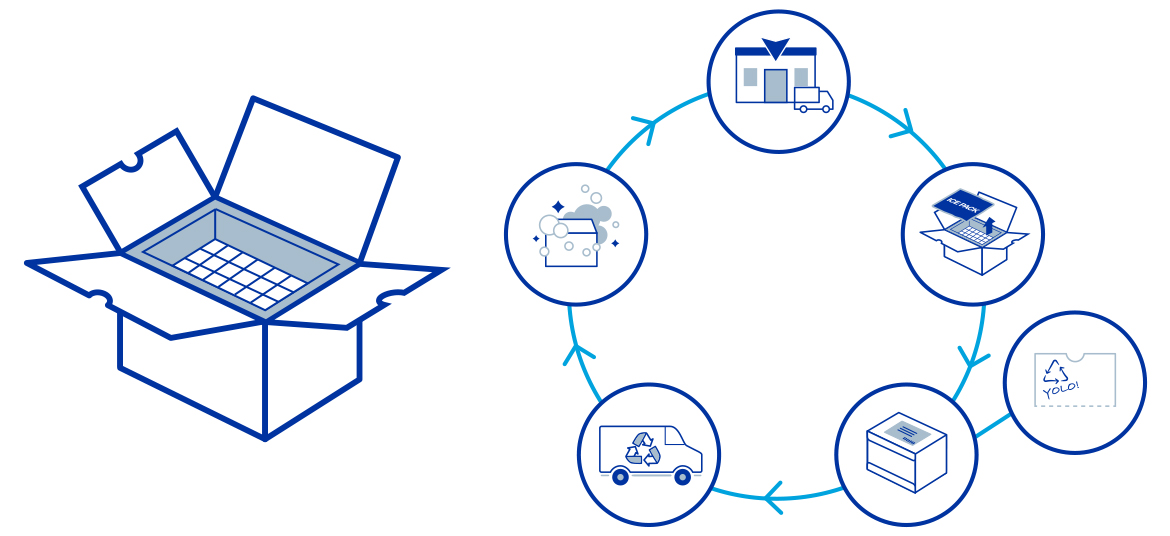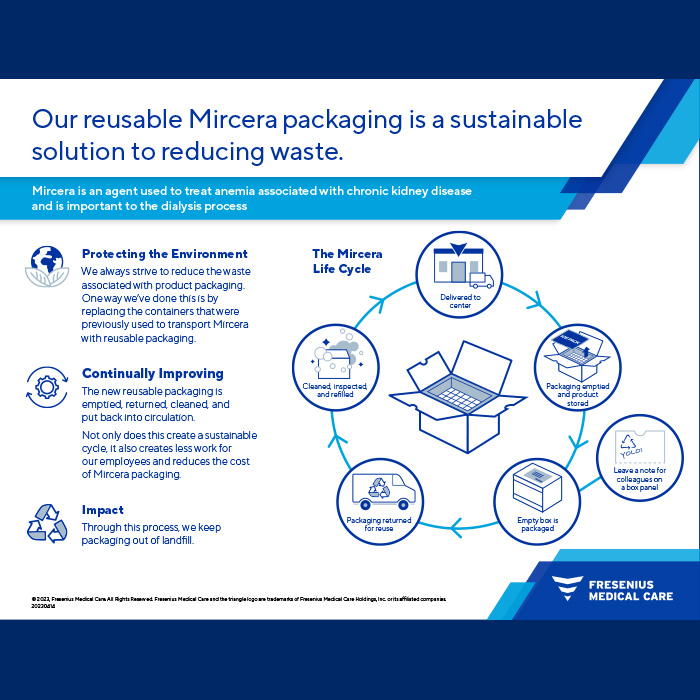Recognizing the obligation we share in the healthcare industry to reduce environmental impact, Fresenius Medical Care commits several efforts toward limiting climate change by adjusting daily operations to support environmental sustainability.
Fresenius Medical Care’s recently implemented take back program for Mircera shipping containers is one way the company has reimagined our daily operations to reduce solid waste. Mircera is an agent that treats anemia, a complication many end stage kidney disease (ESKD) patients deal with, and an important component of dialysis. Mircera is shipped in a cardboard box filled with Styrofoam containers and ice packs to keep the agent cold. In the past, the shipping materials were disposed of after a single use, creating unnecessary waste.
Now, Fresenius Medical Care uses reusable containers for Mircera shipments. Once the Mircera agent is safely stored in the refrigerator, shipping materials are packed up and returned to a UPS logistics center, then back to Fresenius Medical Care’s third-party logistics partner. The container is cleaned and put back into circulation.
Our Mircera Reusable Containers: How It Works
The idea that waste produced by Mircera packaging could be drastically reduced was born in 2019 when Frieda Bowerman, vice president, Pharma Procurement of Fresenius Medical Care North America, toured a facility with a third-party logistics partner. A question arose during the tour about saving material through reuse or recycling.
Bowerman and her team took the suggestion and worked closely with a logistics company to research solutions. They landed on the take back program that Fresenius Medical Care uses today, and a pilot program launched.
The COVID-19 pandemic’s onset hit just as the program started to take off, so the program was paused. It picked up where it left off once vaccines were distributed globally and the Centers for Disease Control and Prevention provided guidance on shipping medical material. Centers have been excellent partners of the program, Bowerman said — they have even had fun with it by signing their names, leaving messages, and drawing photos on the containers for the next center to receive.
“Introducing reusable containers enables us to limit the amount of solid landfill waste produced in-center,” says Bowerman. “We can also simplify the Mircera unboxing and disposal process, saving employees time and reducing costs of shipping material.
“These containers were once sent to dialysis centers and disposed of after a single use, sending thousands of individual containers to landfills each year. Now, our process is much more sustainable and efficient.”
The Sustainable Cycle
Since instituting reusable containers with Mircera shipments, Fresenius Medical Care has observed a major reduction in waste. About 25,000 containers are returned, cleaned, and reused each year.
“As an organization we strive to reduce the waste associated with product packaging and will continue to tackle the environmental issues that our patients, employees, and the communities face,” says Bowerman.
“As an industry leader, it’s important to live our values and continue to adopt sustainable solutions like our Mircera container take back program so that we can better care for our patients, people, communities, business, and planet.”
View the full infographic by clicking on the image




